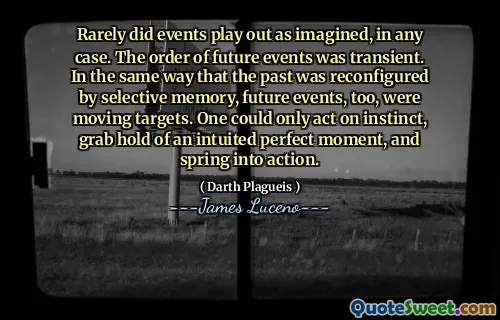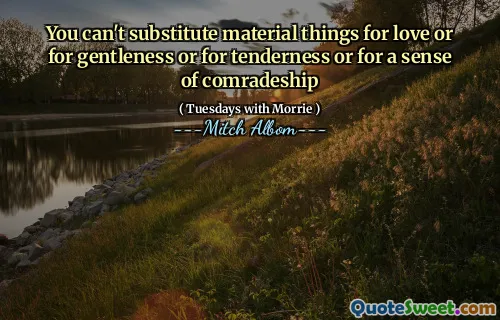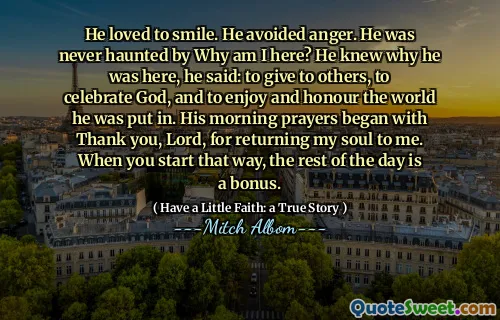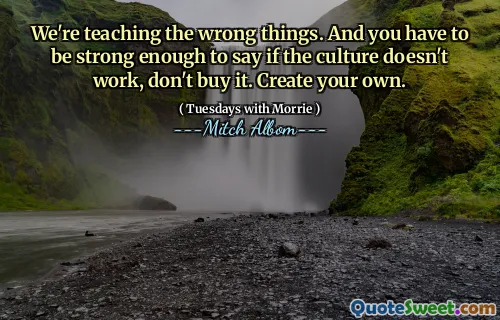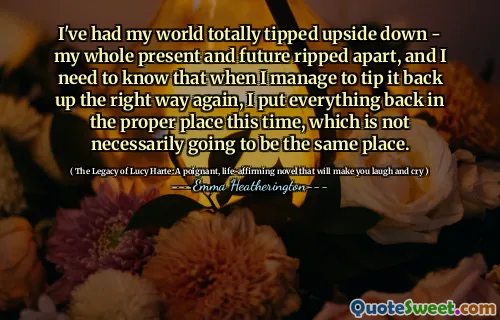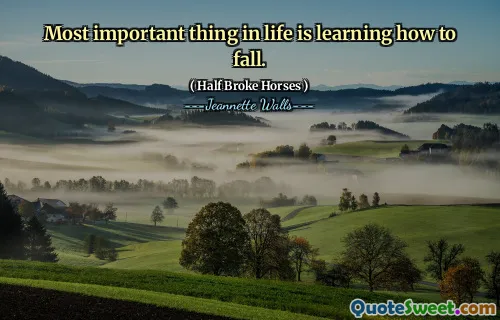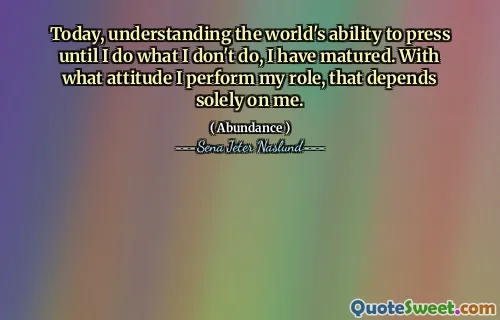
Rarely did events play out as imagined, in any case. The order of future events was transient. In the same way that the past was reconfigured by selective memory, future events, too, were moving targets. One could only act on instinct, grab hold of an intuited perfect moment, and spring into action.
This quote encapsulates the unpredictable nature of life and the illusion of control over future outcomes. It emphasizes that despite our plans and expectations, reality often unfolds differently, shaped by variables beyond our comprehension. The notion that the future is a 'moving target' underscores how our perception of what is to come is fleeting and uncertain, much like the past being modified through selective memory. Such awareness can foster a sense of humility and encourage us to embrace spontaneity rather than rigid planning. Acting on instinct becomes not just a necessity but a philosophy—recognizing that the perfect moment is ephemeral and that capturing it requires immediacy and courage. This perspective aligns with the idea that serendipity and intuition, rather than meticulous control, often steer life's trajectory. It invites us to be adaptable, to trust our instincts, and to accept that clarity and foresight are scarce commodities. By doing so, we can navigate life's uncertainties more gracefully, appreciating the beauty and chaos inherent in the unpredictable flow of events. Embracing this mindset may lead to a more intentional, present, and resilient approach to life's fleeting opportunities, understanding that the best moments are those we seize instinctively, rather than plan for or await with certainty.
